
Xenoblade Chronicles: Definitive Edition (NS) - Review
by Paul Broussard , posted on 12 June 2020 / 6,350 ViewsRemaster month wraps up with arguably the most substantially updated game out of the bunch, namely Xenoblade Chronicles: Definitive Edition. Sitting at a pricey-for-remastering $60, Xenoblade attempts to justify the higher price point with a host of changes and some additional content. Is it worth paying full new game price for the definitive edition of the Wii's swan song? You don't need the Monado to see the future for this answer; you can just read below.
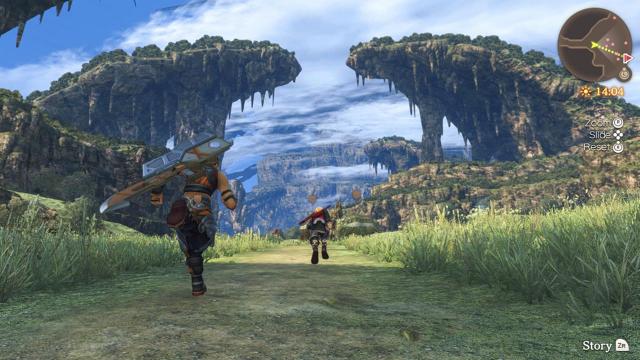
If you’re not familiar with Xenoblade beyond being the game where that one guy from Smash with the rainbow wheel sword comes from, it’s a JRPG originally released for the Wii. You play as quite a few characters, but the main focus is on Shulk, resident of a peaceful Homs colony, whose existence of eating sandwiches and hanging around in a lab all day is interrupted when hostile machines called Mechon attack. Events conspire to reveal that Shulk is capable of wielding a legendary sword that is the only thing which can damage Mechon, and thus Shulk sets out on a quest to track down the attackers and get revenge, while enlisting an ever increasing number of colorful characters to support his cause.
Xenoblade’s narrative is by far one of its strongest points. What perhaps sticks out most is the structure of the story. While Shulk’s desire for revenge is the initial catalyst for the story, it quickly becomes apparent that we’re getting involved in much more than just a singular fight between Homs and Mechon, allowing for the scope of the narrative to expand naturally alongside our view of the world itself. It can be a bit of a slow boil in the beginning, but once it gets going it’s an exceptionally well written experience, with some mind boggling twists and more than a few gut punches.
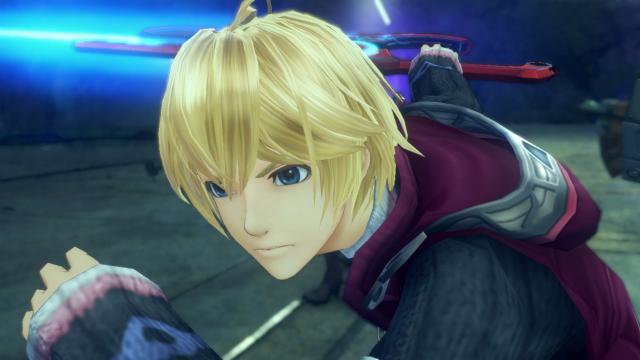
And what good story would be complete without some great characters to boot? Xenoblade, once again, delivers in spades there. All of the game’s major characters get plenty of time to be fleshed out and developed adequately, with well thought out personalities and complex motivations unique to each one. It’s rare, and more than a little encouraging, to see a JRPG like this manage to create such a compelling cast of characters, and do so largely without falling back on tropes to make them stand out (looking at you, Xenoblade Chronicles 2). Interactions between characters can feel a bit forced at times, such as when certain individuals decide that being surrounded by a group of enemies is the best time to remind each other of the power of friendship, but besides those occasional moments the cast of Xenoblade is very well written and fun to be around.
So the story is excellent, but what about the actual gameplay? Like any RPG, Xenoblade revolves heavily around its combat system, which if you’re unfamiliar with it, is potentially most reminiscent of an MMO. After initiating a battle, characters in your party stand around and automatically attack the enemy you choose. The strategy within combat primarily involves positioning the character and picking when to use various “arts” to deal extra damage, induce status effects, heal/buff party members, and more. Dodging and the likes is all handled by RNG as well; you can’t easily move out of the way of attacks as the hitboxes and the animations of attacks are in a tenuous relationship at best. As combat systems go it’s certainly functional; it manages to be simple enough to grasp at the start while simultaneously possessing enough depth to remain engaging throughout. I never found myself particularly gripped by it, but it never becomes frustrating to deal with either.
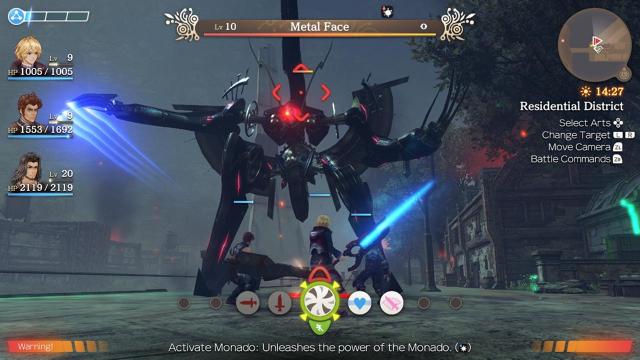
Outside of combat, though, the game does struggle a bit. Like most JRPGs, there isn’t much substance to movement or exploration outside of battle. Environments are certainly varied and pretty to look at, but navigating them can turn repetitive pretty quickly. They really only serve to connect one city area to the next while providing enemies to grind for levels if you so desire. This may not be a sticking point for some, but given the sheer amount of territory you traverse throughout the game, it would’ve been nice if maneuverability outside of combat had been given a bit more depth. As it stands, the only real challenge that the game can throw at you during the myriad of travel time is having to avoid the occasional ultra high level enemy that will aggro if it sees you.
Sidequests are another bit of a stumbling point. Throughout the various cities and fields you find yourself navigating, you’ll come across a number of individuals who would really like something done but are too lazy to go out and accomplish it themselves. These sidequests lack any of the narrative significance that buoys the main story, and almost always boil down to some stranger just asking you to kill a certain amount of pesky wildlife or collect a set number of items. After passing through the initial starting area, I found myself just ignoring these pretty much wholesale. Depending on how much you enjoy fetch quests, your mileage may vary.
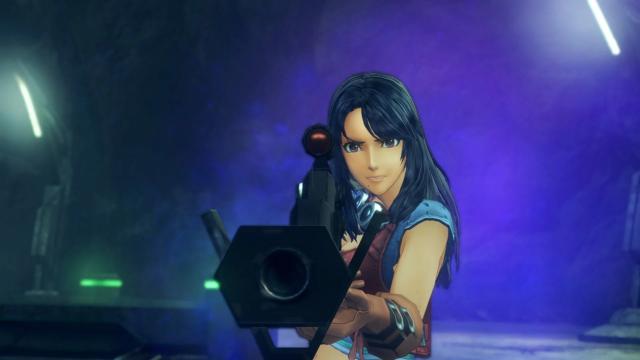
So far, all of this describes the original Xenoblade just as well as the Definitive Edition. So what does the Definitive Edition bring to the table? Quite a bit, actually. For starters, the game looks substantially better across the board. Most textures are redone and models have been updated with increased detail. Environments look notably better and characters express emotion far better than they did in the original. The uplift does make some of the clipping issues that the models have stick out a bit more, but on the whole it’s a notable upgrade. The soundtrack has been fully remastered as well, and is even more enjoyable to listen to than the original game’s superb OST.
On top of this, there’s additional content in the form of an extra epilogue unique to the Definitive Edition. Picking up a year after the end of the original game, the epilogue follows Shulk and Melia teaming up to try and find the lost city of Alcamoth. It adds roughly another ten hours of gameplay to the overall package, so you’re easily looking at a 100+ hour experience between the base game and this. Perhaps even better is that you can play it without having to beat the main game, meaning that Xenoblade veterans can jump into the new content without having to replay a 90 hour RPG first.
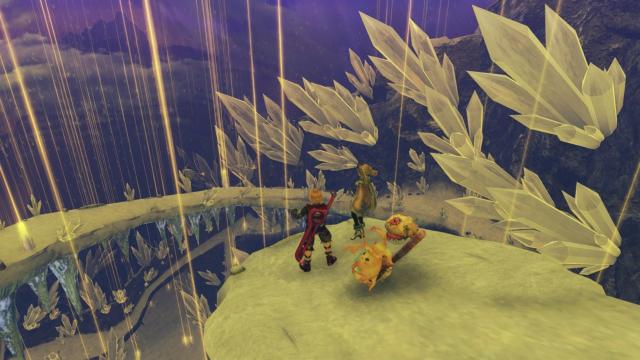
So is Xenoblade: Definitive Edition worth your money? $60 is certainly steep for a remastering, but given the new content and the work that went into updating the visuals and soundtrack, it’s very much worth your money if you enjoyed the game previously. If you didn’t play Xenoblade before, however, I’d base any recommendation on how much you enjoy JRPGs, because this isn’t a game that is likely to win you over if you’re not already a fan of the genre. The story is fantastic, but the gameplay will only appeal to a specific set of tastes. Anyone who does enjoy JRPGs, however, is highly encouraged to look here, as Xenoblade is one of the landmark titles in the genre over the past decade, and the Definitive Edition improves on it across the board.
VGChartz Verdict
7.5
Good
This review is based on a digital copy of Xenoblade Chronicles: Definitive Edition for the NS, provided by the publisher.
More Articles
In my opinion, the three things that you weren't really keen on (Side quests, battle system and general world design) were three of the things that I liked most about this game. Outside of battle there is a huge world to explore, full of nooks and crannies, colorful characters and breathtaking sights. The side quests did a lot to develop minor characters and flesh out the world in a substantial way. They were not all simple fetch/kill quests. There was always a couple everywhere you go that were thoroughly designed and rewarding. And the battle system is fun, dynamic, and original. The lack of random battles makes everything incredibly satisfying and brings the world to life.
If you didn't play Xenoblade on Wii, this is a must buy for everyone who has even a passing interest in RPGs. It is truly one of the best RPGs ever made.
10/10
"Outside of combat, though, the game does struggle a bit. Like most JRPGs, there isn’t much substance to movement or exploration outside of battle." ...So, sidequest and especial enemies and bosses are not worht exploration?
So based on the last paragraph, he deducted points for it being a JRPG...
I took no points off for being a JRPG, or for how much its gameplay appeals to a wider audience. The last paragraph is purely designed to recommend whether or not I think a certain audience would enjoy the game. If someone isn't a fan of JRPGs in general, I probably wouldn't recommend this game to them, whereas I might recommend, say, Doom even to people who aren't FPS fans.
There's nothing inherently right or wrong with not appealing to a large audience, and I don't penalize games for being more niche. That said, I think the most important part of any review is making it clear who I think would and wouldn't enjoy it. That's all the last paragraph is intended to do.
@MTZehvor
I am not into shooters so recommending a mindless game like Doom to me would be very akward. I sometimes play story driven shooters like Metro but Doom would really be off the mark by quite a mile.
Ugh, what an unprofessional review. Honestly, that first paragraph is horrible. Not only it refers to the game wrongly as a fremaster, but it's also judging the game negatively just because it's a 60 dollars game? For what he 'deems' to be an old game? Why are all VGC reviews so negative? Never understood why.
Game gets from the review scale a good rating.
WOW WHY IS VGC SO NEGATIVE.
It seems that I touched a nerve, Random. I'm just stating my opinion. It feels like every game there is a but attached to it. If it were once in a while, it would have been normal, not every opinion is going to be the same, but that's not the case, at least as far I can see. In the end, this review is just badly written, my opinion. It's not very different from when someone says that old Fire Emblem games are better than the new ones. Opinion is like ass, everyone has one. I am, just as you are, entitled to have one.
Most assets have been redone, not touched up, many musics have been re-recorded, combat have been fined tuned, etc. A remaster only upcales and ''pretty up'' the game overall. XC DE has almost have been redone from the ground up. I mean, it's not a full reamke like the RE games you talked about, but it's still a remake. This dosen't fit in the description of a remaster at all.
@coolbeans
It is not wrong to call it a remaster. I could not care less really, but I have been known to go against people who would attack someone for uttering the word "remake" when it comes to this game. However I see it on both sides, and the argument itself is completely stupid and a waste of time so I would rather just avoid the subject entirely at this point.
7? Lol more like a phat 9,game is amazing
You've reviewed quite a few remakes/remasters, and are consistently scoring them 10-20 points below the industry average, generally with the same criticism that they're too much like the originals. But, I don't think that's a fair way to judge things. I think the more appropriate question is how enjoyable is the game to someone playing this game today.
For reference, 7/10 would fall at or slightly below the meta-scores for games like Lego: The Hobbit, Marvel vs. Capcom Infinite, and Dead Rising 4. Is this less enjoyable than those games?
Thanks for the civil response!
I do want to state up front that when I "score" something, I'm not using Metacritic or other websites as a way to gauge what the average score looks like. I take my general feelings about a title (i.e. do I think this is an average game, above average, good, great, etc.) and then compare it to the descriptions for scores found in this website's review methodology page. A 7, like in this case, is a game I really enjoyed. To quote the VGC methodology page, 7s are "Well above the statistical average, and worth the price of admission. Games in this camp are solid, valuable experiences." I'd highly recommend 7/10s, at the very least, to pretty much any fan of the genre.
You have touched upon a worthwhile issue, though, and that's that our scale does tend to be a bit "harsher," for lack of a better term, than the industry average. A 7/10 here is at least intended to mean a good game, whereas a 70 on Metacritic is below average. And that comes from the admins desires to try and incorporate a scale where every digit is meaningful. A scale loses a lot of its meaning when even below average games occupy the top 30% of the scale, and virtually any game, regardless of how bad it is, will occupy the top 50% of it.
So there is a disconnect between scores here and scores on other websites, but the admins have decided that the disconnect is worthwhile in order to try and promote a scoring system that they feel is ultimately more adequate at assessing game quality. As an individual reviewer for this website, though, I abide by what VGC's review methodology lists as a "good" score vs. a "decent" score or a "great" score, rather than what the industry as a whole does.
I used to write reviews, so I've been there.
People generally aren't going to be looking only to one site for reviews, and are going to be viewing the score in context with other websites. While I get the admin's position, I think it's better to be in step with other websites. The important disconnect isn't between the website and other websites, but between the reviewer and the reader. If the reader and the reviewer have a different opinion on the meaning of a 7 that's a far bigger problem IMO than certain digits on the scale not being useful.
Based on the feedback you're getting, do you think readers have an accurate impression on what you thought of the game's quality? If not, then I'd suggest the admins should reconsider their stance.
Thanks for the civil response!
I do want to state up front that when I "score" something, I'm not using Metacritic or other websites as a way to gauge what the average score looks like. I take my general feelings about a title (i.e. do I think this is an average game, above average, good, great, etc.) and then compare it to the descriptions for scores found in this website's review methodology page. A 7, like in this case, is a game I really enjoyed. To quote the VGC methodology page, 7s are "Well above the statistical average, and worth the price of admission. Games in this camp are solid, valuable experiences." I'd highly recommend 7/10s, at the very least, to pretty much any fan of the genre.
You have touched upon a worthwhile issue, though, and that's that our scale does tend to be a bit "harsher," for lack of a better term, than the industry average. A 7/10 here is at least intended to mean a good game, whereas a 70 on Metacritic is below average. And that comes from the admins desires to try and incorporate a scale where every digit is meaningful. A scale loses a lot of its meaning when even below average games occupy the top 30% of the scale, and virtually any game, regardless of how bad it is, will occupy the top 50% of it.
So there is a disconnect between scores here and scores on other websites, but the admins have decided that the disconnect is worthwhile in order to try and promote a scoring system that they feel is ultimately more adequate at assessing game quality. As an individual reviewer for this website, though, I abide by what VGC's review methodology lists as a "good" score vs. a "decent" score or a "great" score, rather than what the industry as a whole does.
It isn't, no, VGChartz's comment section is just very weird about double posting at points. I'm not quite sure what happened there. Much as I'd love the prospect of automated responses that tailor themselves to what other people say, technology isn't quite there yet.
I do think you're right in that this disconnect exists, and that at the very least, people are turned off by the prospect of a lower score. But I also think there's value in, at the very least, pushing against the "average" review score, even if there are some growing pains in the meantime. I think we've already seen some progress over the past 10-15 years. For instance, last year, only seven original games scored over 90 on their most reviewed platform on Metacritic. Compare that with a decade ago, where over twenty five games scored at that level or better, and ten more were within a point of the 90 threshold (including Peggle, of all things).
For all its faults, game reviewing has come a long way over the past ten-fifteen years, and that's largely come through a lot of pains with reviewers pushing to give lower scores to popular games that didn't receive, not even bad scores, but not quite as high scores as their respective fanbases would have liked (I'm usually not one to defend IGN, but one of the most prominent examples for that comes from their Uncharted 4 review, which initially was shredded for daring to give it an 89 instead of a 90+). For better or worse, I think these pains are necessary for trying to better the review scale as a whole.
The problem is that this particular reviewing scale really doesn't make sense regardless of the industry standard. It's flawed on its own.
Apparently, any score above an 8 is a GOTY candidate. How many GOTY candidates should there be a year? Maybe 7 or 8 if we're being generous?
Meanwhile, 6 is decent.
So where does that leave any game that is better than decent but not a game of the year candidate? 7. There's only one potential score for any "good but not game of the year". And I'd argue that most major releases are going to fall into the "good but not game of the year" category. That's a really narrow range that a lot of games are going to be squeezed into, and with no way to differentiate between a good, or very good game. Based on the review scale, I'd say that this game does warrant a 7. It's good, not goty worthy.
The problem is, I'd say that based on this scale, literally everything I've played this year would fit into the same category. There's really over one place to fit most of the games that people are going to be interested in.
So this is moving into the realm of my own personal opinion, but I personally feel that the range that the average AAA game comes across extends further backwards than that. Personally, I don't believe the average AAA release is just a "7." Most AAA releases should, in theory, wind up somewhere between a 5 and a 7, depending on how much they bring to the table and how well executed it is. To me, a game that is perfectly functional, but pushes no envelopes and doesn't take a notable risks is a solid 5. An acceptable, average game that is probably fine for fans of the genre but likely won't entertain anyone beyond that. A 6 generally has some more unique ideas or interesting concepts, but doesn't execute them well consistently. And I'd argue there are quite a few AAA games that fall into those two categories (as well as quite a few that fall into the 7 category).
This is, once again, the realm of my own opinion, but take something like RE3 remake, for instance. It's a perfectly functional title; the game controls and handles well, competent level design and difficulty curve. That's the bare minimum for a 5/10. What it does after that establishes where it winds up. It has a number of interesting ideas, but ultimately drifts too much into relying on set pieces and is also a pretty short experience, even compared with other RE games. Solid 6/10 game. And, incidentally, that's the score it got on this site too.
I can't say I agree with that... I would expect that most AAA developers are talented enough and have enough quality control that they will general release an enjoyable product. The scale VGchartz indicates that 7 is good.
A five indicates that a product is not satisfying or complete. I think it's quite possible for a game to be satisfying without pushing any boundaries or taking many risks. If a game's score is 50% technical competency and 50% based on envelope pushing and risks... that's a strange scale.
Regardless of that, again the underlying question is Should there only be one score possible for games that are good but not goty worthy?
Well, at the risk of diving headfirst into semantics, I guess that depends on how you define "good."
To me, at least, the term "good" is a relative one when used to describe games. The average release will, by definition of the word itself, be an average game. Decent games are a step above average titles. Good games, conversely, are those that separate themselves from the crowd notably. The game is good relative to the average release, i.e. a notable step up from the average release.
If you're willing to go along with that for a second, then, yes, I do think it makes sense to only have one score that those types of games fit into. Each year should, in theory, bring with it a ton of average games, fewer "poor" and "decent" games, and still fewer "good" and "bad" games. There shouldn't be that many games that qualify into that "good" category each year. I'd argue maybe between 20-25 depending on the quality of releases.
And, truth be told, I don't think that number is too far off from what's reflected by other major outlets. I'd argue that games generally need better than an 85 on Metacritic to be seriously considered for GotY awards, whereas 80 is usually the cutting off point for anything deemed good, and anything below that is considered iffier. So if we view MC's 86 and above as the equivalent for VGC's 8 or above, and 80-85 as the equivalent for VGC's 7, then we wind up with 10 new games in the "great/GotY" category for MC (86 or above), and ~22 in the "good" category (80-85, my number may be slightly off because I did a quick count based on what I remember as being new but I don't think it should be too inaccurate).
Which, at least to me, makes sense. The "good" category is obviously larger than the "great" category, but that's because there's more good games than great games. The close you get to either extreme of the scale, the fewer games should, in theory, occupy those numbers, assuming the scale is functioning properly. Personally, I don't think it's too much weight for a number to pull the weight of classifying a couple dozen games. If anything, I feel like problems would arise with the 4-6 range, where the majority of games would, again, in theory fall.
I removed the comment I had made yesterday, cause it was pretty childish. So I apologize for the snide remark. I should be a little more constructive about it. I don't agree first hand with the pricing and remastering comment. Though I feel that a lot of stuff was remade in this game, it falls for me in the hybrid range. However, I don't think that even if it's a remaster, a 60$ price isn't justified. People tend to underestimate the effort. I think the work put into the game justifies it, which was a lot. As for the exploration: Theres a lot to check out, each area and city has multiple goals for you to accomplish, but you don't have to stick around too long. Unless of course grinding is what you wanna do. And I think it serves it well in that sense, otherwise XP can be gained quickly from sidequests and exploration which is a nice option against grinding. Aside from that, the big areas do give the game a little extra grandiose-ness (not a real word lol). As for the game being only appealing to specific tastes.. I think it's a bit unfair because it is a game that comes from a time where it was a little bit more mainstream. And while games like FFVIIR overhaul the battle systems of their previous iterations, I appreciate that they stuck to something that is getting a little rare these days. The game is good, but to me it's amazing. And that's because of the characters mostly, you grow to care for each of them and I guess because it's a classic small band going against the empire type story that makes you care a lot.
Yeah when it comes to the Remakster talk, a hybrid is a good word to describe it. A lot of assets were remade and a lot more work has been put into it than some of the other remakes like Trials of Mana, REmake 2/3, Pokemon Mystery Dungeon, etc. However the game still plays like the same Wii game with a lot of quality of life improvements and a HUGE boost to image quality. One thing to point out however is that that image boost is so huge, the game still looks miles better than the original would look with the base assets increased to 1080p.
So with all that in mind, I see the points made on both sides. People can call it whatever they want, it is still the best way to play an already great game. The thing that bothers me is when someone outright attacks another person for uttering either word and this game in the same sentence. There are arguments to be made for both sides, but some people take it a bit too seriously TBH.
Opening sentence is full of shit. Lost me there. Shit review when you cannot even get basic facts right.
I also went back to check this guys reviews. He is Slant Magazine of VGChartz. Low balls everything.
One Angry Gamer has competition, now there are Many Angry Gamers
And one edgy gamer.
Bookmarked
Ah Rol, I've truly missed your wonderfully blunt commentary.
Contrary to your myriad of assumptions, however, I did play the original, and enjoyed it quite a bit. And I enjoyed this version as well. I'm not quite sure where the conclusion that I just "don't like JRPGs" comes from given that I said this game was good. It seems more than a little nonsensical to toss around accusations of just not liking a genre when I said it was a good game.
My criticisms of the game for which I view it as a "good" game rather than a "great" game come from what I wrote earlier in the review, which is that I only found the combat to be functional rather than particularly engrossing, and that outside of combat the game somewhat struggled to maintain my interest. I mentioned this previously in another comment, but I never take points away for how much I do or don't recommend a game to a specific audience. That being said, I think the most important part of any review is to state who you think a game would appeal to. But just because I said "I don't think this will appeal to non JRPG fans" doesn't immediately equate to me taking points off for that. To return to your Metroid example, it would be like me giving Super Metroid a 7 because I thought certain gameplay mechanics were handled poorly or progression wasn't executed well (which I don't, but for example), and then after giving those reasons, stating who I think the game would and would not appeal to.
And this is kind of the unfortunate world that reviews occupy as a whole. We do our best to give as much of an informed take as we can given the time constraints. Simultaneously, as consumers, you should never take any review as an attempt to assert gospel truth, but rather use the information in them to try and judge whether you'll like it or not. At the end of the day, any review is just the opinion of one person, and if you disagree with me on issues (i.e. you enjoyed the combat more than I did), then more power to you. There's nothing wrong with that. My review is just that; my opinion on what the game did right or wrong, with an educated guess at the end for who I think this game will appeal to. If the things I mentioned as problematic for me don't bother someone, then there's no reason they should hold that person back. And that's really all reviews should be used as; an opinion by someone else that people can use to compare their own preferences to and see if the things the reviewer liked or disliked match up with theirs.
Well, I think a large part of it is that I don't consider the adjustments made to actually address the biggest shortcomings of the original release. In my opinion, the sidequests and large swathes of the game outside of the combat are still pretty bland, and so additions primarily focused around enhancing those aspects are...nice, I suppose, but don't really address whether the game is ultimately more enjoyable to play or not. When I'm writing up a review for a remaster/remake/rewhatever, I'm mostly focusing on whether the new experience is more enjoyable than the original, and if QoL improvements circle around part of the game that I wouldn't recommend engaging with to begin with, then I'm probably not going to devote the limited space I have in writing to talking about them.
The other part is that this doesn't work like a purely additive system. If you take a game that is, say, an 8 beforehand, and then only make slight improvements to it in a remaster, that game is not guaranteed a floor of an 8. The quality of a remastering is assessed on how much the devs have improved on the original experience. And while I'm glad to see Monolith putting in the effort to provide QoL adjustments, if those parts of the game still aren't enjoyable (as they generally aren't, imo) then I don't factor it into the improvements aspect. And this is a perspective that's adopted by the reviewing community as a whole. To return us to Metroid Prime once again, the original Prime and Prime 2 both scored higher on MC than the Trilogy, despite being largely the same game. This isn't because they felt the Trilogy was some downgrade to the Gamecube releases, but because the quality of a rerelease depends largely on how much it improves on the original, rather than just a baseline of how good it was beforehand.
Wonderful 101 and Saints Row The Third Remastereds are other examples of this. I'd consider both to be the best versions of the game available, but I also scored both games lower than I would have scored the originals if I had reviewed them when they released, because I think there's room for them to address many of the gameplay problems the originals had that they did not. In my opinion, Xenoblade still carries most, if not all, of the major issues I had with the original release. You're free to disagree with me, of course, but at that point it's just a matter of opinion.
I'm afraid I don't quite see how the text and the score doesn't match. Again, the score (or really, the concept behind the score, the term "good") is designed to indicate the quality of improvements made to the original. You can, in theory, have a landmark title worthy of an 8/9 of 10, and then have a remaster that bungles improvements and winds up being a much lower score despite it still being a high quality experience overall, and perhaps even still superior to the original release (see Dark Souls Remastered), because it's judged on how much it improves things.
In truth, this is one of the reasons I view number scoring as a necessary evil rather than something I actively endorse, particularly when it comes to new versions of older games. It's already a stretch to try and reflect a complex opinion with a single number, but what should that number mean for remasters? Is it purely the improvements made over the original? Is it purely how good the game is now, without taking into account the fact that the devs have had multiple chances to get things right now? Is it some amalgamation of the two? I tend to lean towards the former, while also trying to take into account that some games obviously have more room for improvement than the former, but there's reasonable arguments to be made for all three.
But, again, this is why I strongly recommend looking at the text of a review first and the number as very secondary, especially in the realm of remakes/remasters. What the reviewer says about the game, and what they feel should have been improved and what was improved, is vastly more important than the attempt to try and summarize all that up into a single number.
...again, I never claimed this game is worse because of the DE. My point is that you can have a newer version of a game that is, by most standards, better than the original, but still winds up with a lower score. Once more, a score for a rerelease is not some additive equation, where quality of the original + number of improvements = final score. It is expected that, with a second attempt, the devs will improve on their previous efforts. Creating a better product with another attempt is the absolute minimum.
The score is an assessment based on how much, in my opinion, the devs took the opportunities available to improve upon the original experience. A "good" remastering (7) is one where the devs improved upon it a fair bit, but I think there was more that could have been realistically done that would have notably enhanced the experience. A "great" remastering (8) is one where the devs added a number of new features that thoroughly enhanced my enjoyment, and the flaws that remain are mostly things that would have required reworking the game. Conversely, a 6 or below is one where not enough effort was put into actually improving things, and the experience is largely interchangeable with the initial game.
Finally, and there's a reasonable claim to be made here that I should have been more specific with who I was talking to, but when I say that anyone who's a fan of JRPGs should check this out, I specifically meant individuals who in that category who didn't play the original. This is largely a recommendation that's independent of the score, and is aimed more at whether the experience is still enjoyable for new players in 2020. As another example, I would highly recommend anyone who hasn't played Wonderful 101 play the Remastered version, even though I think it's a lazy attempt at a re-release, because the original game itself holds up that well, and if you're going to play any version for the first time, you might as well choose the one with a few improvements over the original rather than none at all. It's a similar deal for Xenoblade, although it's DE is better than Wonderful 101's. I would highly recommend the game to any JRPG fan who hasn't played XB in any form before, but my recommendation becomes a bit more muted to those who have (hence the 7).








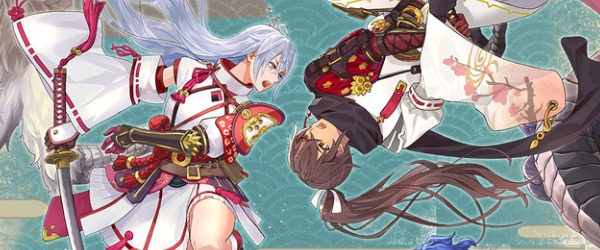
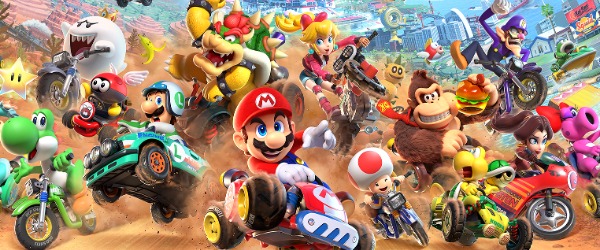
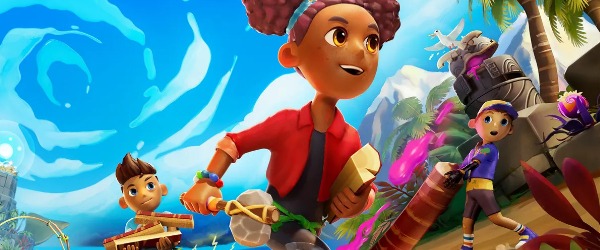
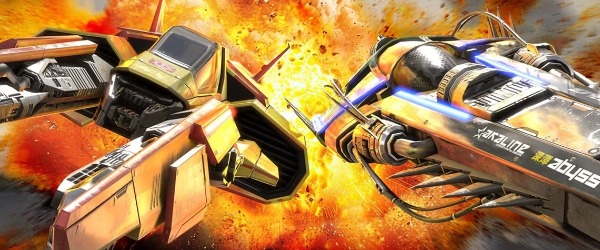













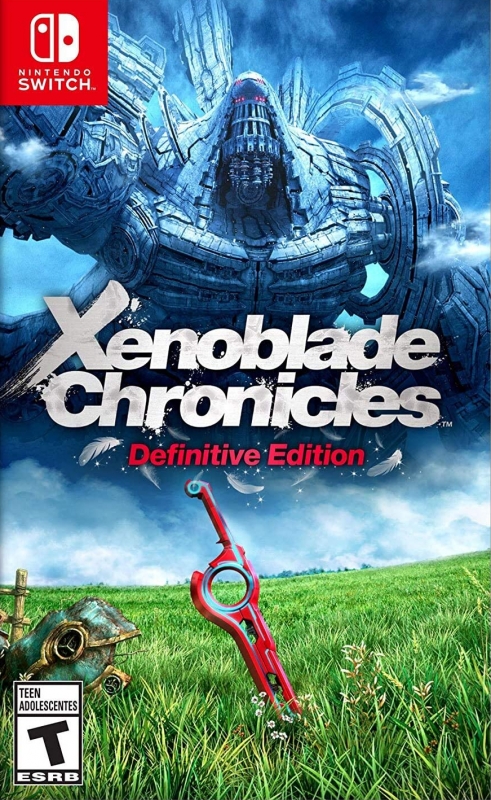

 Essay Pro
Essay Pro